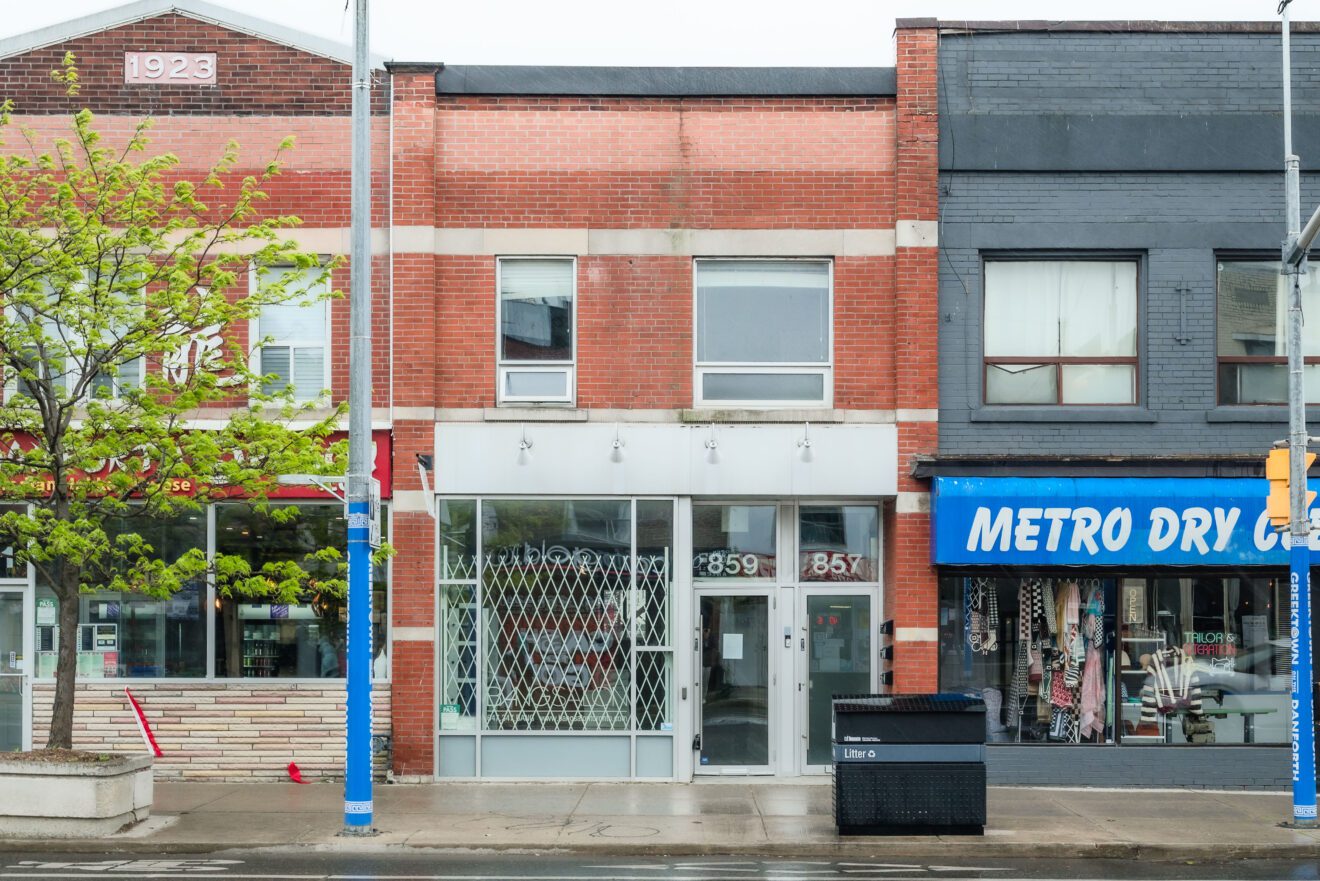Property management services play a pivotal role in sustaining rental businesses by handling the numerous operational challenges that come with leasing, maintaining, and optimizing rental assets. When operations run smoothly, rental property owners can focus on long-term growth and asset acquisition instead of being entangled in day-to-day logistics. The intricacies involved in tenant handling, legal compliance, property upkeep, and financial reporting demand a strategic partner—one that not only understands the business but operates with precision and care.

Effective management translates directly into satisfied tenants, optimized cash flow, and minimized risks. The rental market remains dynamic, and ensuring consistent performance requires attention to both detail and macro-level decision-making. Owners who entrust their assets to seasoned managers often experience stability, growth, and peace of mind. In the following sections, each area of rental operations is examined to show how professional oversight can elevate property performance and ensure seamless functionality.
Tenant Acquisition and Screening: Building the Foundation
Tenant selection defines the character and reliability of rental income. Without proper screening, property owners may face delayed payments, higher turnover, or legal conflicts. A strategic approach to tenant acquisition includes multiple layers: advertising, showings, screening, and leasing.
Successful management starts with visibility. Rental listings must be targeted and attractive—crafted to draw the right demographic, priced accurately, and placed on platforms that convert interest into applications. Once inquiries come in, managers must vet applicants through credit checks, employment verification, criminal background reports, and rental history analysis.
This structured screening ensures that tenants have the financial capacity and behavioral patterns consistent with reliable occupancy. The process minimizes risk and curbs future conflicts. While legal protections for tenants continue to evolve, a good lease starts with a good tenant. Property managers function as the first line of defense, keeping unreliable applicants from ever crossing the threshold.
Lease Structuring and Legal Compliance
Rental contracts are more than simple agreements; they are legal frameworks that define the landlord-tenant relationship. A lease that lacks specificity invites ambiguity and conflict. Structuring leases correctly requires more than downloading a template—it demands attention to local laws, renewal clauses, security deposit rules, maintenance obligations, and notice periods.
In volatile legal environments, non-compliance can result in lawsuits, penalties, or forced changes to operations. Lease terms must align with jurisdictional regulations and clearly outline expectations. Managers ensure that each lease not only protects the owner’s interests but also maintains fairness to the tenant, which strengthens relationships and reduces disputes.
Moreover, changes in housing legislation can render older leases obsolete. Professional oversight ensures continuous alignment with legal updates, shielding property owners from unnecessary liabilities. Good documentation, clarity in responsibilities, and enforceable terms create a structure in which tenants understand their rights and owners retain control.
Rent Collection and Financial Consistency
Revenue is the lifeblood of a rental business. Delays, defaults, or disputes can disrupt cash flow and compromise operational budgets. Streamlining rent collection involves more than setting a due date—it’s about creating systems, enforcing standards, and handling non-payment tactfully yet firmly.
Managers implement digital payment platforms, automate reminders, and maintain records with timestamps. These systems allow tenants to pay conveniently and track payments, while property owners gain real-time visibility into their income. Should late payments occur, escalation procedures must be followed—from gentle nudges to legal notices, all documented and compliant.
Consistent cash flow also enables reinvestment into the property—whether through upgrades, repairs, or expansion. A dependable rent collection system is the backbone of operational sustainability, and with professional management, every rent cycle can close without guesswork or confrontation.
Maintenance and Property Upkeep
The physical condition of a rental property directly affects tenant satisfaction, longevity of occupancy, and overall value. Neglected repairs often escalate into larger issues, causing dissatisfaction or even driving tenants out. Maintenance is not just about fixing what’s broken; it’s about preserving quality, ensuring safety, and enhancing value.
Responsive management establishes preventative maintenance routines—inspections, servicing HVAC units, plumbing checks, roof assessments, and landscaping care. These scheduled tasks minimize emergencies and extend asset lifespan. A proactive approach is more cost-effective than reactive scrambling.
Additionally, managers maintain vetted networks of contractors—plumbers, electricians, handymen—ensuring that work is reliable, cost-effective, and timely. Vendors are held to performance standards, and work is monitored. Tenants value responsiveness, and when issues are addressed swiftly, they’re more likely to stay long-term and treat the property with respect.
Tenant Relations and Conflict Resolution
Relationships are central to long-term occupancy. Friction between tenant and owner, or between tenants themselves, often stems from unmet expectations, poor communication, or unresolved grievances. Managers serve as neutral intermediaries, balancing firmness with diplomacy.
Ongoing communication—routine check-ins, maintenance updates, or renewal discussions—reinforces transparency and trust. When problems arise, such as noise complaints, lease violations, or maintenance delays, managers intervene with structured processes. Their professional detachment allows them to resolve disputes without emotional escalation, reducing turnover and preserving community harmony.
Conflict is inevitable in shared spaces or long-term tenancies, but when managed constructively, it rarely results in vacancies or legal challenges. Managers also act as record keepers, documenting all interactions to protect the interests of both parties and prevent misinterpretation.
Marketing and Vacancy Management
Empty units represent opportunity costs. The faster a vacancy is filled, the more stable the income stream. Marketing rental properties requires local market knowledge, competitive pricing, visual storytelling, and digital agility.
Managers coordinate professional photography, virtual tours, and detailed listings. These are pushed through the right channels—rental platforms, social media, relocation networks—while targeting the ideal tenant profile. Timing, location insights, and market demand dictate how properties are positioned to stand out.
Once interest is generated, response time is critical. Managers handle inquiries, conduct showings, and track metrics to identify bottlenecks in the marketing funnel. With this data, strategies are refined, and time-on-market is reduced. Efficient turnover translates into financial continuity and a better property reputation.
Financial Reporting and Budget Management
Operational transparency is vital for strategic planning. Owners need clear, detailed reports to make decisions on spending, pricing, and long-term investments. Monthly income statements, balance sheets, and expense breakdowns provide a full picture of performance.
Managers organize and deliver this data in standardized formats, highlighting trends, flagging irregularities, and suggesting optimizations. These insights are essential for forecasting taxes, planning capital improvements, or analyzing returns.
Moreover, budgeting for maintenance, marketing, and contingencies ensures the business remains financially agile. Professional managers keep owners informed without overwhelming them with noise, delivering just the right amount of context for informed decision-making.
Technology Integration and Operational Efficiency
Digital transformation has improved how properties are managed. From cloud-based dashboards to AI-powered chatbots for tenant queries, technology reduces manual errors, improves tenant engagement, and enhances oversight.
Managers adopt technology that centralizes data, automates rent reminders, schedules inspections, and flags inconsistencies. This streamlining reduces overhead, improves response times, and supports better tenant experiences. Tenants today expect digital communication, quick responses, and transparency. Meeting these expectations means integrating modern platforms into traditional workflows.
Not all technology is created equal, and selecting the right tools requires industry knowledge. Managers vet platforms for security, usability, and scalability, ensuring they support growth without compromising on performance or compliance.
Risk Mitigation and Insurance Coordination
Risk takes many forms: unpaid rent, tenant injury, property damage, natural disasters, or legal action. While insurance provides a financial buffer, day-to-day practices influence how often those policies are called upon.
Managers implement safety checks—fire alarms, structural inspections, pest control—to reduce accidents. They ensure that tenant behavior aligns with lease terms to prevent avoidable damage or liability. When incidents occur, documentation and timely reporting are key.
Additionally, managers help coordinate insurance claims, secure vendor warranties, and manage liability coverage. Their oversight ensures that the property remains a low-risk environment, which can reduce premiums and avoid unnecessary legal exposure.
Strategic Planning for Asset Growth
For rental business owners aiming to scale, strategy must replace spontaneity. Managing one unit differs greatly from handling ten. Growth requires systems, processes, and forward-looking planning. Managers assist in expansion by analyzing performance metrics, identifying bottlenecks, and forecasting returns.
They advise on property acquisition, rehabilitation plans, and repositioning strategies. Whether it’s converting long-term rentals into short-term units or targeting a new demographic, strategic insight provides a blueprint for evolution. Their experience with similar portfolios adds depth to decision-making.
Ownership should be a journey, not a juggling act. Managers help owners step into the role of investor rather than operator, offloading tasks while preserving authority over big-picture moves. This transition lays the groundwork for sustainable growth and wealth generation.
Customization and Owner Collaboration
Every property owner has different goals—some prioritize cash flow, others value appreciation, or tax efficiency. Managers adapt strategies to fit the owner’s vision, not the other way around. Through ongoing collaboration, feedback loops are established, and management is fine-tuned accordingly.
Whether it’s setting pet policies, adjusting renewal incentives, or planning capital upgrades, input from owners is factored into operations. Custom dashboards, personalized reports, and direct access to decision-makers ensure that control remains in the hands of the investor while execution is delegated.
This flexible partnership model respects the unique philosophy of each owner and fosters a collaborative environment in which property potential is fully realized.
Elevating the Tenant Experience
Tenant satisfaction drives retention. Lease renewals, positive reviews, and referrals are all functions of how tenants perceive their environment. Managers elevate tenant experience by focusing on responsiveness, communication, and property ambiance.
Little details—clean common areas, quick maintenance turnaround, thoughtful move-in procedures—create lasting impressions. Technology like tenant portals or maintenance request systems ensures that tenants feel heard and supported.
When tenants stay longer, turnover costs drop. Vacancy loss, cleaning, repairs, and marketing are minimized. Managers create an ecosystem where tenants don’t just occupy a space—they live in a community worth staying in.
Why Choose InTrust.?
At InTrust., we believe rental property ownership should be rewarding, not overwhelming. Our approach is built on trust, transparency, and performance. From strategic tenant placement to daily operational management, we act as stewards of your investment, ensuring it thrives through every market cycle.
We bring together technology, tailored services, and a dedicated team that prioritizes your goals. Whether you manage a single-family home or a diversified portfolio, our focus remains on optimizing performance, reducing friction, and preserving value.
With InTrust., you gain more than a service provider—you gain a partner who treats your rental business like their own.

Questions About Commercial Real Estate?
See the services we offer to learn how we can help you achieve more with your asset.
Learn More


